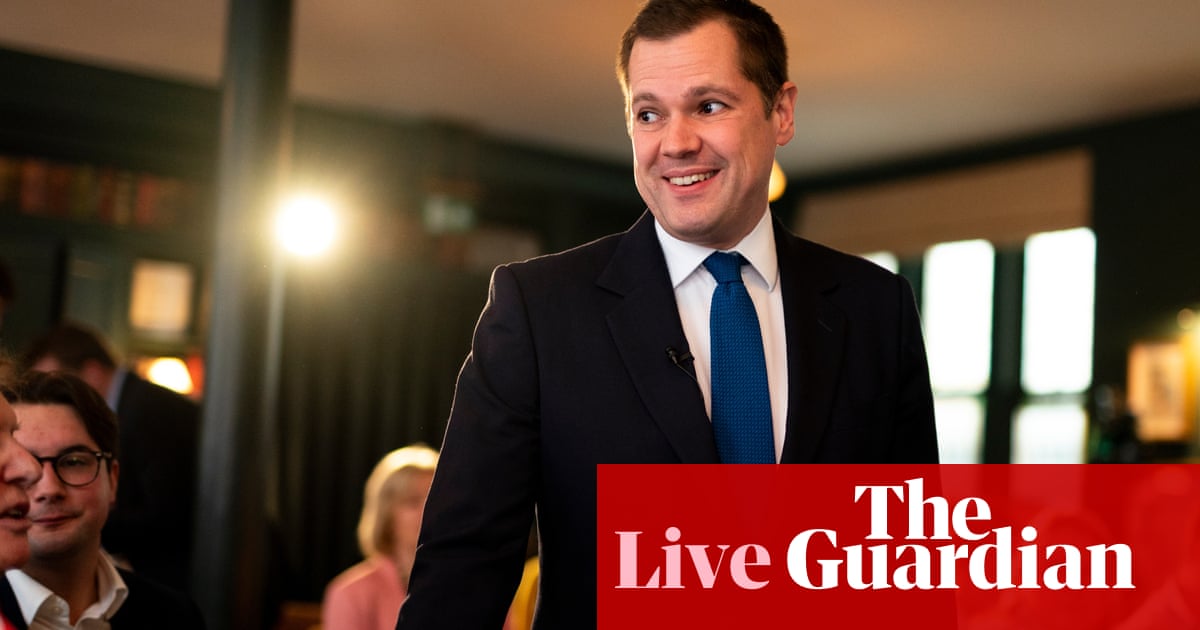In his new book, Changing My Mind, Julian Barnes writes: “We always believe changing our mind is an improvement, bringing a greater truthfulness to our dealings with the world and other people. It puts an end to vacillation, uncertainty, weak-mindedness. It seems to make us stronger and more mature.”
Well, maybe in literature, but not in politics, where changing your mind is akin to changing your underwear in public. Not a sign of strength, but a cause for embarrassment. There are few scenes of schadenfreude more keenly savoured in the political world than a dramatic U-turn, ideally with handbrake fully engaged and wheels loudly screeching.
Peter Mandelson’s reappraisal last week of Donald Trump might be said to be a model of the form. Having called the American president a “bully” and “reckless and a danger to the world” in 2019, Mandelson performed a boldly ambitious 180 on Fox News by describing his comments as “ill-judged and wrong”.
No doubt some will snort mockingly at what they see as sycophantic backtracking but “when the facts change”, as John Maynard Keynes is alleged to have said, “I change my mind. What do you do?” Although the great economist probably never uttered those words, Mandelson should nonetheless take comfort in them.
Because the facts have indeed changed. The most telling empirical development since the original criticism is that Mandelson is now British ambassador to the United States. A second, but no less consequential shift in real-world circumstance, is that Trump is once again the American president, a situation that looked highly unlikely six years ago.
If weight of evidence is a sound reason for a reversal of opinion, then seriousness of threat is arguably a more effective one. As the president displays a gift for vendettas that would put a Sicilian don to shame, Mandelson understood that if he wants to remain ambassador a certain diplomatic reassessment was called for.
There will be those that think the president’s menacing claims on Greenland and the Panama canal lend credence to Mandelson’s historic description of him as a “danger to the world”, but it is to our man in Washington’s tactful credit that he now recognises Trump’s “dynamism” and “energy’, even if it’s not yet fully appreciated by the Danes and Panamanians.
Yet we should not overstate the ambassador’s stoical ability to swallow his own words, for the true mark of principle in abandoning earlier and dearly held positions is a willingness to stand alone. Mandelson, by contrast, is in crowded if not necessarily good company.
Many critics of Trump have found themselves experiencing a similarly diametrical change of heart, particularly since he was elected president again. Some can even boast an earlier Pauline conversion. After all, the president’s very own number two, vice-president JD Vance, once described his current boss as “reprehensible”, “a bad person”, and wondered if he might be “America’s Hitler”.
after newsletter promotion
But that was all of eight years ago. Ancient history. If Vance could see the error of his ways, and be welcomed into the fold, there is hope for everyone now queueing up to salute the most powerful man in the world’s courage and fair-mindedness. Or presumably that’s the working theory.
Perhaps it’s a trend that will catch on, and changing one’s mind will come to be seen in politics as not as a show of weakness and desperation but rather of maturity and truthfulness. There are certainly many in the world who would celebrate an outbreak of those qualities in the man in the White House. Then we really could change our minds.

.png) 2 months ago
35
2 months ago
35













































